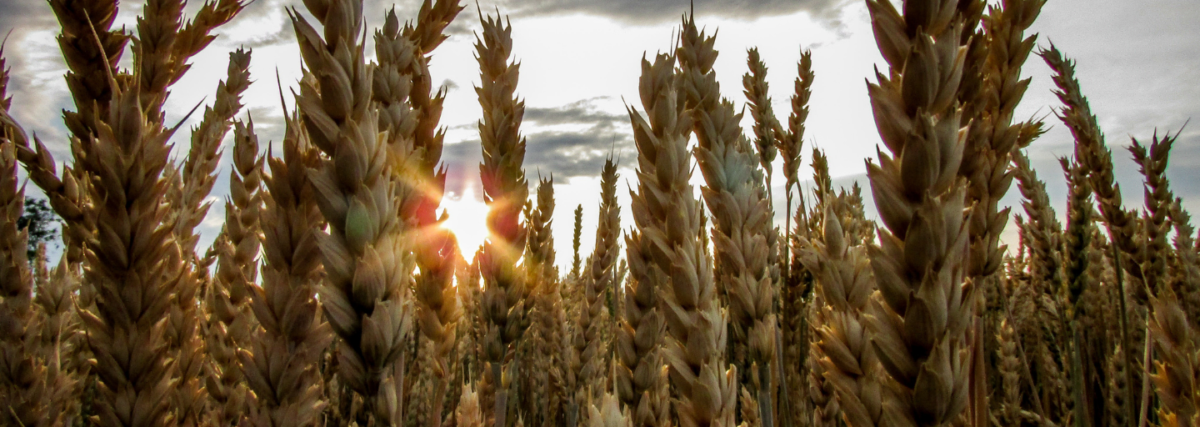GMOs Plant Seeds For Corporate Control
Published Mar 2, 2021

The immediate harm from GMOs is felt by the farmers and land they're forced upon.
Genetically modified foods — GMOs — are another tool industrial agriculture uses to control our food system. GMOs aren’t about feeding the world, they’re about corporate profits.
The majority of U.S. corn and soy are GMOs. These products mostly provide cheap fuel for factory farms and become processed junk food. They also devastate the environment, leaving vast monocultures in their wake and leaving farmers hooked on dangerous herbicides like Roundup.
Be a part of the movement to save independent farms and protect our environment.
Five Things Monsanto (Bayer) Doesn’t Want You To Know About GMOs
- GMOs increase corporate control of our food
Increasingly, the food industry is dominated by a handful of powerful corporations that control nearly every aspect of how our food is produced. Monsanto, for example, now owns a staggering number of seed companies that were once its competitors. For people who buy groceries, it’s distressing to realize that the dozens of brands in the grocery store are mostly owned by a few parent companies. When a company has a virtual monopoly on a whole aisle of the grocery store or a set of agricultural products, they make decisions based on what’s best for their profits, not what’s best for their customers or the planet.
This consolidation of control is easy to see in the corporations that create GMOs. Biotech companies like Monsanto, Dow, Dupont and Syngenta create not only GMO seeds, but an entire system of food production. If there’s profit to be made in selling one product farmers need to buy, there’s far more profit to be made from creating a system of products designed to work together; for example, linking seeds with specific chemicals that these companies also sell, like Monsanto soybeans that are engineered to withstand Roundup, the weed killer produced by Monsanto. If a farmer plants those soybeans, they’re going to buy Roundup as well.
Nor is it easy for farmers to avoid planting GMOs. In our increasingly consolidated food industry, farmers have fewer and fewer options, and the advice they hear at every turn is “go GMO.” This happens not just in the United States, but increasingly around the world as well. - GMOs don’t live up to the hype
GMOs often don’t even do what they’re supposed to do. You’ve probably heard that “we need GMOs in order to feed the world,” on the presumption that only GMO crops have a high enough yield to keep up with a growing population. The trouble is, that simply isn’t true. Studies on certain GMO crops have found little to no yield improvements, and long-term studies of organic farming show that organic can match conventional agriculture’s yields.
In other cases, biotech companies claim that their GMOs have nutritional benefits, or will solve some other pending crises. Take “golden rice,” which is supposed to cure vitamin A deficiency in the developing world. Unfortunately, it doesn’t: the beta-carotene in golden rice can’t be absorbed by the body unless combined with certain fats and oils, which is not helpful for people living in poverty with a limited diet. Plenty of non-GMO foods, like carrots and sweet potatoes, are rich in vitamin A and don’t require millions of dollars to produce and grow. Golden rice makes for good PR, but it won’t solve the world’s nutritional problems.
Other times, GMO crops serve no practical purpose at all – at least for the people who eat them. Do we really need science to stop apples from turning brown when we cut them? Non-browning GMO apples are purely a marketing scheme, a way to make produce look fresher than it actually is and to make life easier for processors who want to sell cut-up apples to fast food chains. - More GMOs means more chemical use
Many GMO crops are specifically engineered to resist certain weed killers, such as the potentially carcinogenic Roundup, so planting GMOs means that farmers end up using the associated chemicals, and using them in more ways, when they use GMO crops. Those chemicals end up in the environment and threaten the health of farmers and farmworkers, as well as the communities they live in. The system for making sure these chemicals don’t end up in our food is extremely weak.
What’s even worse is that, because of increased chemical use, the pests are catching up. Over time, weeds and insects evolve a resistance to the chemicals we use against them. The more we use, the faster they adapt. Many common herbicides are no longer effective on our farms, which leaves biotech companies to encourage the use of harsher chemicals, which the pests will eventually adapt to… leading to an arms race of dangerous chemicals where people and the environment will inevitably be the losers. - GMOs and organics can’t coexist
Trying to keep a farm GMO-free is harder than you might think. Some GMOs don’t stay put where they’re planted. It’s quite common for them to contaminate neighboring farms, or even farms many miles away when pollen from GMO crops drifts on the wind. Seed supplies can be contaminated with GMOs, too. In 2013, an Oregon farmer found GMO wheat in his field – an unapproved crop that hasn’t been field tested since 2005. This is a serious problem for organic farmers, who are not allowed to use GMOs. - The research on GMOs is biased
There is a great deal of research out there about the safety and effects of GMOs – but far too much of it is conducted, funded or otherwise influenced by the biotech industry. Disturbingly, this includes research done at public universities. When GMO advocates claim that there’s a “scientific consensus” about GMOs, or that leading scientific organizations are on their side, they’re often cherry-picking points from reports that cast the debate in a more nuanced light. We need more truly independent long-term safety research into the effects of GMOs on our health and the environment.
There are plenty of good reasons to be concerned about GMOs. But for consumers who are concerned, it’s not always clear in the marketplace where these crops end up – and biotech and food companies are fighting tooth and nail to stop new requirements that GMO foods be labeled.
Be a part of the movement to prioritize independent, sustainable farms.
Are you worried about the impact of~data centers on your community?
Enjoyed this article?
Sign up for updates.
TO TOP




